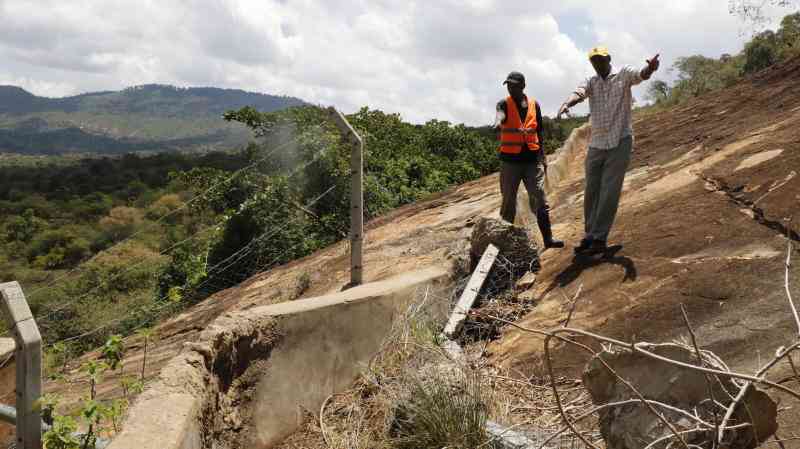
From the top, Masue rock which stretches several metres provides a scenic view of Sultan Hamud and other neighbouring towns along Mombasa road in Makueni County. In another life, the massive, winding rock would be a tourist attraction of sorts.
However, until 2014, the residents of Masue village in Mbitini ward knew nothing but torment from the rock, especially during the rainy seasons when heavy torrents of water from the rock would gush downwards at top speeds, tearing into people's farms and leaving in their wake untold destruction of homes and farms. Additionally, the runoff water from the rock would pulverize the area into ugly gullies, big enough to swallow even an elephant.